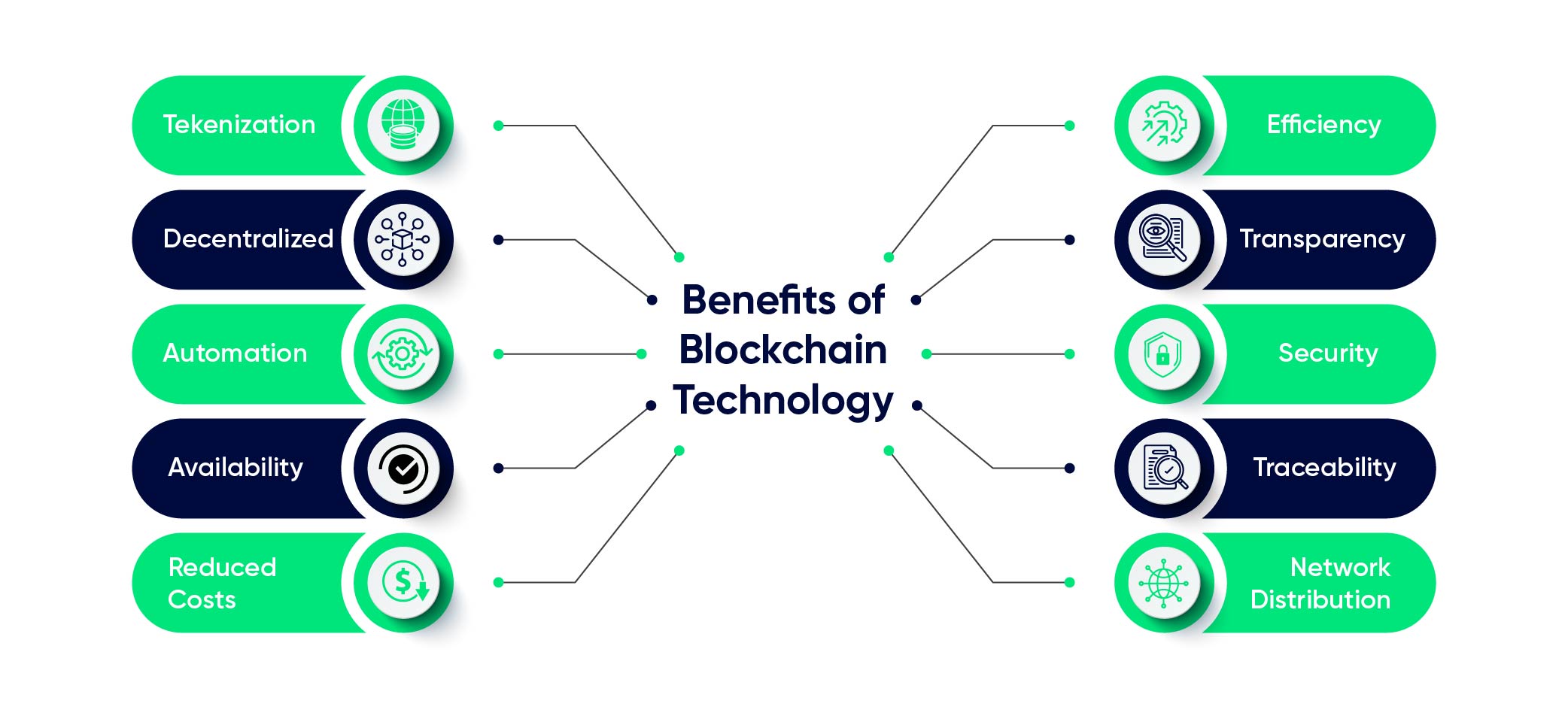
Introduction
Web3 & Blockchain Consultancy :
What is the Purpose of Blockchain Technology?
What is Blockchain Technology?
In the world of technology, few innovations have captured our collective imagination quite like blockchain technology. Blockchain has developed well beyond its financial roots since it was first introduced as the underpinning technology for Bitcoin in 2008. It is hailed as a revolutionary force today with the power to completely disrupt all industries. But why is there such a buzz around blockchain technology, and what is the purpose of blockchain technology? We will examine the core goals of blockchain technology and look at some of its practical uses in this blog post. Blockchain technology is a distributed, decentralized ledger that records transactions across numerous computers while preserving the confidentiality, accuracy, and transparency of the information. Various digital cryptocurrencies, including the original and best-known example, Bitcoin, are built on top of it. The blockchain technology has several advantages in a variety of fields and applications. Let’s look at the history of blockchain before moving on to its main benefits.History of Blockchain Technology
The creation of Bitcoin in 2008 by a person or group using the alias Satoshi Nakamoto marked the beginning of a remarkable journey for blockchain technology. The first actual use of blockchain was for the digital currency Bitcoin. With no need for a central authority, the blockchain operated as a decentralized ledger to record all Bitcoin transactions, providing a revolutionary answer to the double-spending issue. Blockchain technology was initially associated with Bitcoin. Its potential rapidly extended beyond the world of cryptocurrencies, though. Decentralized apps (dApps) were made possible by the introduction of Ethereum in 2013 by Vitalik Buterin, a blockchain platform that used smart contracts to enable developers to build and deploy dApps. This breakthrough broadened the application of blockchain beyond cryptocurrencies to a variety of use cases, including supply chain management and decentralized finance (DeFi).What is the Purpose of Blockchain Technology?
Blockchain technology has been well-known throughout time in a variety of industries thanks to qualities like immutability, transparency, and security. Businesses and organizations started looking into its possible uses in fields including healthcare, elections, real estate, and more.
-
To Facilitate Real Estate Transactions
Blockchain technology facilitates greater access to financial data and ownership in real estate transactions. Before, transferring and establishing ownership involved a lot of paperwork and other processes. Giving you a more convenient and safe way to transfer ownership can help you complete the transactions quickly and without any problem. In these transactions, blockchains enable the reduction of paperwork and other formalities.
-
Immutable and Transparent Record-Keeping
Blockchain technology aims to provide a secure, open, and unalterable platform for storing data and transactions as one of its key objectives. Banks and government databases are examples of traditional centralized systems that are vulnerable to manipulation, fraud, and unauthorized access. Blockchain offers a solution to this problem by creating a decentralized ledger that is scattered throughout a network of computers. The inability of a transaction to be altered or withdrawn after it has been added to the blockchain ensures the integrity of the data.
-
Enhanced Security
In the digital age, security is crucial, and blockchain technology provides a strong solution. Blockchain guarantees that data recorded on the ledger is secure and tamper-proof by using cutting-edge cryptographic techniques. A chain of blocks is formed by connecting each block of data to the one before it using a cryptographic hash. It is nearly impossible to compromise the system since any attempt to change the data in one block would require modifying every other block that follows it in the chain.
-
Decentralization and Lack of Trust
In centralized systems, trust is built between parties, and transactions are facilitated by intermediaries like banks. By enabling peer-to-peer transactions that are validated and recorded by the network itself, blockchain does away with the need for middlemen. Users can conduct transactions without having to have faith in a centralized authority because of this decentralization. Significant ramifications of this idea include changes to voting procedures, supply chain management, and the financial sector.
-
Smart Contracts
Self-executing contracts known as “smart contracts” have predetermined rules and conditions that are written on the blockchain. When the prerequisites are satisfied, they automatically go into effect, doing away with the need for middlemen and lowering the possibility of disagreements. Smart contracts are designed to simplify and automate a variety of procedures, including contracts, insurance claims, and payment settlements. This invention has the potential to save costs and save time across a variety of sectors.
-
Tokenization and Digital Assets
Blockchain technology enables the creation of digital tokens that represent ownership of real-world assets. This process, known as tokenization, has far-reaching implications for asset management and investment. Tokenized assets, such as real estate, stocks, and artwork, can be traded and divided into smaller fractions, making them more accessible to a broader range of investors.
-
Supply Chain Management
By offering an extensive and irrefutable record of a product’s path from its origin to the final user, blockchain can improve supply chain transparency. This aids in confirming the legitimacy of items, cutting down on fraud, and guaranteeing their quality and safety. Blockchain technology has the potential to revolutionize sectors like food, medicine, and luxury products.
-
Identity Verification and Privacy
Blockchain technology can enable secure and decentralized identity verification. Users have control over their personal information and can grant or revoke access as needed. This enhances privacy and reduces the risk of data breaches and identity theft.